Home » Services » Tax Resolution »
Unfiled Tax Returns
What Happens if You Have Unfiled Tax Returns?
Taxpayers that fail to file their unfiled tax return for one or more years for various reasons can become overwhelmed later on down the road when attempting to file all their missing tax years at once. Missing all or a portion of their records, personal hardship and/or neglect are some of many reasons people fall behind in filing their taxes.
Most years, the IRS requires you to file your taxes by April 15th. If you don’t file your tax return you may receive late penalties, and your refund could be delayed or even forfeited if filed late enough. If you have unfiled tax returns, you may face penalties, wage garnishments, or even tax liens. Fortunately, professional tax relief services can help resolve these issues by negotiating with the IRS and finding the best solution for your situation.

Failure to File & Failure to Pay Penalties
When tax returns go unfiled, the IRS doesn’t just send a reminder, it imposes steep, compounding penalties that can turn a modest liability into a crushing tax bill. Acting proactively, even if you can’t pay in full, can save you hundreds or even thousands in penalties, stop further enforcement actions, and protect your assets.
Understanding Penalties
Failure to File (FTF) Penalty
- 5% of the unpaid tax balance per month (or partial month) past the due date, up to a 25% maximum.
- Triggers immediately on the first day after the filing deadline, regardless of extensions.
Example: Owing $10,000 and filing three months late would incur a $1,500 FTF penalty (5% × 3 months × $10,000).
Failure to Pay (FTP) Penalty
- 0.5% of the unpaid tax balance per month, capped at 25%.
- Starts on the due date of the return, even if you filed on time but didn’t pay.
- Compounds daily until paid or assessed in full.
Tip: Filing, even without full payment, halts the Failure to File penalty and limits total penalties.
Interest
- Charged on both tax and penalties at the federal short‑term rate plus 3%, compounded daily.
- Applies until your balance is paid in full.
Why You Can’t Afford to Delay
Putting off unfiled returns and unpaid taxes doesn’t just rack up fees, it triggers serious IRS collection actions that can damage your credit, drain your bank account, and even garnish your wages. Here are the key risks you face when you delay:
- Liens & Levies: Extended nonpayment can lead to Notice of Federal Tax Lien or bank account levy.
- Credit Impact: Liens no longer directly affect your credit score, but they can make it harder and more expensive to get loans.
- Wage Garnishment: The IRS can garnish up to 15% of disposable income, without a court order.
How Optima Tax Relief Protects You
Penalty Abatement
We assess your situation for “reasonable cause” (e.g., illness, natural disaster) and negotiate to reduce or eliminate FTF and FTP penalties.
Explore Penalty Abatement »
Installment Agreements
Tailored payment plans allow you to spread your balance over affordable monthly installments, often with reduced or zero deposit.
Learn About Installment Agreements »
Offer in Compromise
Qualified taxpayers may settle for less than the full amount owed. We prepare your application and handle IRS negotiations end‑to‑end.
See Offer in Compromise Options »
Unfiled Returns Preparation
- We gather missing documents, prepare and file delinquent returns, and immediately stop FTF penalty accrual.
Get Help with Unfiled Returns »
Social Security & Unfiled Tax Returns
Failing to file your tax returns doesn’t just invite hefty IRS penalties, it can also derail your future Social Security benefits. The Social Security Administration (SSA) relies on your reported earnings to calculate work credits and determine your monthly retirement, disability, and survivor benefits. When you leave returns unfiled, those earnings go unrecorded, creating gaps in your earnings history and potentially reducing your benefits down the road.
Work Credits & Retirement Benefits
- Earning Credits: In 2025, $1,810 in covered earnings earns one credit, up to four per year.
- Why It Matters: Unfiled tax returns can keep self‑employment income from counting, delaying benefits or lowering payments.
Impact on Disability & Survivor Benefits
- Disability Benefits: Eligibility and payout depend on your earnings history. Unfiled returns can reduce or block benefits.
- Survivor Benefits: Missing work credits can lower the benefits your family receives after you pass.
Why Self‑Employed Tax Filings Matter
Self‑employed taxpayers report net earnings on Schedule SE. Even if you’ve paid quarterly estimates, unfiled returns mean the SSA never registers those earnings, jeopardizing both your tax compliance and your Social Security future.
Need to Catch Up on Unfiled Tax Returns?
Optima Tax Relief can help you locate missing documents, prepare and file delinquent returns, and negotiate any associated penalties so your earnings record and Social Security benefits are fully protected.
IRS Collection and Enforcement Actions for Unfiled Tax Returns
When you have unfiled tax returns, the IRS can take aggressive steps to collect what it believes you owe, often without warning. First, the IRS may file a Substitute for Return (SFR) on your behalf, which ignores deductions and credits and maximizes your tax liability. Once an SFR is in place, or if you simply owe unpaid taxes after filing late, the IRS can deploy its full arsenal of enforcement powers under IRC §§ 6321–6323.
Substitute for Return (SFR)
If you miss the deadline for your unfiled tax returns, the IRS will prepare an SFR that assumes zero exemptions or credits, inflating your balance due. Replacing an SFR with accurate filings is the fastest way to stop further penalties and correct your tax bill.
Get Help with Unfiled Returns »
Wage Garnishment
To collect taxes on unfiled returns or unpaid assessments, the IRS can garnish up to 15% of your disposable wages, directly from your paycheck, without a court order. Garnishments persist until your balance (including penalties and interest) is paid in full or restructured under an installment agreement.
Stop Wage Garnishment »
Bank Levies
The IRS can levy funds from your checking, savings, or brokerage accounts to satisfy a tax debt arising from unfiled returns or late payments. Levies often freeze accounts for 21 days, giving you a narrow window to request a release or negotiate.
Bank Levy & Lien Release Services »
Federal Tax Liens
Filing a Notice of Federal Tax Lien secures the IRS’s claim against your property, real estate, vehicles, or business assets, once your unfiled tax returns lead to an assessment. A lien clouds your title, preventing sales, refinancing, or the extension of new credit until resolved.
Lien Release & Withdrawal »
Property Seizures
In the most severe cases, continued non‑compliance with unfiled tax returns can lead the IRS to seize and auction assets—homes, vehicles, boats—to recoup owed amounts. This action requires a final notice of intent to levy and gives you a 30‑day window for a Collection Due Process hearing.
Surprising Consequences of Unfiled Back Taxes
Life with unfiled back taxes isn’t just about mounting penalties and interest, it can quietly upend your travel plans, career prospects, and even your financial aid eligibility. From passport revocations to stalled mortgage applications, the fallout often reaches far beyond the IRS. Below, discover seven unexpected ways unfiled back taxes can catch you off guard, and learn how getting caught up can restore your peace of mind.
Passport Denial or Revocation
If you owe “seriously delinquent” federal tax debt (currently over $64,000, including penalties and interest), the IRS will certify your debt to the State Department. Once certified, your passport application can be denied, or an existing passport revoked, until you clear or enter into a payment arrangement on your back taxes.
Security Clearance & Federal Employment
Unfiled returns show up on background investigations as a sign of financial irresponsibility. Under the Office of Personnel Management Guideline F, failure to file or pay taxes is a disqualifier for new, or even existing, security clearances, potentially ending military or contractor careers.
Loan Applications & Mortgage Refinancing
Banks and mortgage underwriters almost always require at least two years of filed federal returns to verify income. Without them, you’ll struggle to qualify for a home loan, refinance, or even a small business loan, regardless of your actual earnings.
Professional License Suspension
Federal Student Aid (FAFSA) Eligibility
Missed Refunds & Lost Credits
How Tax Relief Companies Help with Unfiled Tax Returns
Struggling with unfiled tax returns and mounting back taxes? Ignoring your tax obligations can lead to penalties, interest, and aggressive IRS collection actions like wage garnishments and bank levies. Fortunately, tax relief companies specialize in providing professional tax relief services to help you navigate the complexities of the IRS and regain control of your finances.
How Tax Relief Companies Can Assist You
A reputable tax relief company, such as Optima Tax Relief, offers expert tax relief services to:
- File Unfiled Tax Returns – Ensure your back taxes are properly filed, minimizing errors that could trigger audits or additional penalties.
- Reduce IRS Penalties and Interest – Many taxpayers qualify for penalty abatement programs, which can lower or remove IRS penalties and interest charges.
- Set Up Affordable Payment Plans – Establish a structured Installment Agreement to break down your tax debt into manageable monthly payments.
- Negotiate Tax Settlements – Programs like the Offer in Compromise (OIC) allow some taxpayers to settle their back taxes for less than they owe.
- Stop IRS Collections – Professional tax relief services can help prevent wage garnishments, tax liens, and bank levies before they impact your financial stability.
Why Use a Tax Relief Company?
The IRS tax resolution process is complex. Trying to catch up on years of unfiled returns alone can quickly become overwhelming, especially if you’re unsure where to begin. Tax relief companies employ tax attorneys, CPAs, and enrolled agents who specialize in negotiating with the IRS and securing the best possible outcome for your situation.
If you need expert tax relief services to resolve unfiled tax returns and back taxes, Optima Tax Relief is here to help. We bring a team of licensed tax professionals who specialize in IRS negotiations and tax problem resolution. With over a decade of experience, we know how to navigate the system, minimize the damage, and create a clear path forward.
We’re here to guide you every step of the way and fight for the best outcome possible.
Frequently Asked Questions About Unfiled Tax Returns
How many years does the IRS go back for unfiled tax returns?
The IRS rarely goes past six years for non-filing enforcement. For the most part, delinquent returns and substitute for return (SFR) enforcement actions are completed within three years after the due date of the return. However, unfiled tax returns from recent years should be addressed as soon as possible to avoid penalties.
How do I resolve unfiled tax returns?
The following steps are key to resolving unfiled tax returns:
- Gather all the information needed to file the past-due return. You can do this by contacting the IRS and requesting your wage and income scripts.
- Complete your unfiled tax returns accurately and submit them to the appropriate IRS unit.
- Keep an eye on the return processing and other compliance activities. You can do this by contacting the appropriate IRS unit to make sure the IRS processed your unfiled tax returns.
The IRS maintains a file going back numerous years of all W2s, 1099s and 1098s (mortgage interest paid) filed in the name of individual taxpayers. Optima Tax Relief can determine certain facts from master file transcripts, available for those years where the IRS has prepared a substitute return. These ‘records of account’ provide adjusted gross income, taxable income, tax, number of exemptions, filing status and self employment tax. When we take on this kind of case, we will assist in re-filing your returns and our negotiations will be based on more favorable returns for your benefit.
How many years can IRS go back for unpaid taxes?
The IRS generally has 10 years from the date a tax liability is assessed to collect unpaid taxes. This period is called the Collection Statute Expiration Date (CSED). After this time, the IRS can no longer legally collect the debt. However, certain actions like filing for bankruptcy or entering into an installment agreement can extend this period.
What happens if I don’t file my tax return?
If you don’t file your tax return, the IRS can file a substitute return on your behalf, which may not include credits or deductions you’re eligible for. The IRS will then pursue collection actions such as wage garnishments, bank levies, and even property seizures to recover the taxes owed.
Can the IRS garnish my wages for unpaid taxes?
Yes, the IRS can garnish your wages if you have unpaid taxes. They can deduct a portion of your income each pay period until the debt is paid off. It’s important to resolve unpaid taxes quickly to avoid this enforcement action.
What is the penalty for not paying taxes?
The Failure to Pay penalty accrues at 0.5% per month on the unpaid tax balance, up to a maximum of 25%. In addition, interest is charged on the unpaid amount, compounding the financial burden.
How does not filing taxes affect my Social Security benefits?
Failing to file taxes can impact your Social Security benefits, especially for self-employed individuals. The Social Security Administration relies on your reported income to calculate benefits, and unfiled returns can result in lower benefits in the future.
What are tax relief services, and how do they help with back tax?
Tax relief services assist taxpayers in reducing or managing their tax liability by negotiating with the IRS, setting up payment plans, and exploring settlement options like Offer in Compromise.
How do tax relief companies negotiate with the IRS?
Tax relief companies work with tax professionals, including CPAs and enrolled agents, to communicate with the IRS on your behalf, aiming to lower penalties, set up installment agreements, or qualify for tax liability forgiveness programs.
Can tax relief services stop IRS wage garnishments and bank levies?
Yes, tax relief services can negotiate with the IRS to stop wage garnishments and bank levies by arranging alternative repayment options or submitting hardship requests.
How long does it take for tax relief services to resolve tax issues?
The time frame depends on the complexity of the case, the type of tax resolution program used, and the IRS’s response time.
Why should I choose a tax relief company like Optima Tax Relief instead of hiring a tax attorney?
Optima provides a team-based approach with experienced tax attorneys, CPAs, and enrolled agents who work together to create the best resolution strategy for your specific tax situation. With over $3 billion in resolved tax liability and 100,000+ tax issues successfully handled, Optima brings unmatched experience and results you can trust.
Do You Have Unfiled Tax Returns? Optima Tax Relief Can Help
Optima Tax Relief can prepare past returns using various substitute sources when there are missing records. Those unfiled tax returns should be filed as soon as possible in order to avoid accumulated compounding interest. Also, it should be noted that if unfiled tax returns have not been filed for the three most recent tax years, those returns should be prepared immediately in order to claim any refunds that may be due. For assistance with a tax return, speak with a licensed professional at Optima Tax Relief.
Optima Tax Relief, LLC is a tax resolution firm independent from the IRS. This content is made available for informational and educational purposes only. Nothing included in the content should be taken as a guarantee, warranty, prediction, or representation about your specific situation. This content is not intended to be a substitute for professional advice and services. We encourage you to consult with a tax professional to discuss your specific tax matters. Individual results may vary. We do not provide tax, financial, bankruptcy, accounting, or legal advice and nothing contained in this content is intended nor shall be construed as such.
Blog Articles About Unfiled Tax Returns
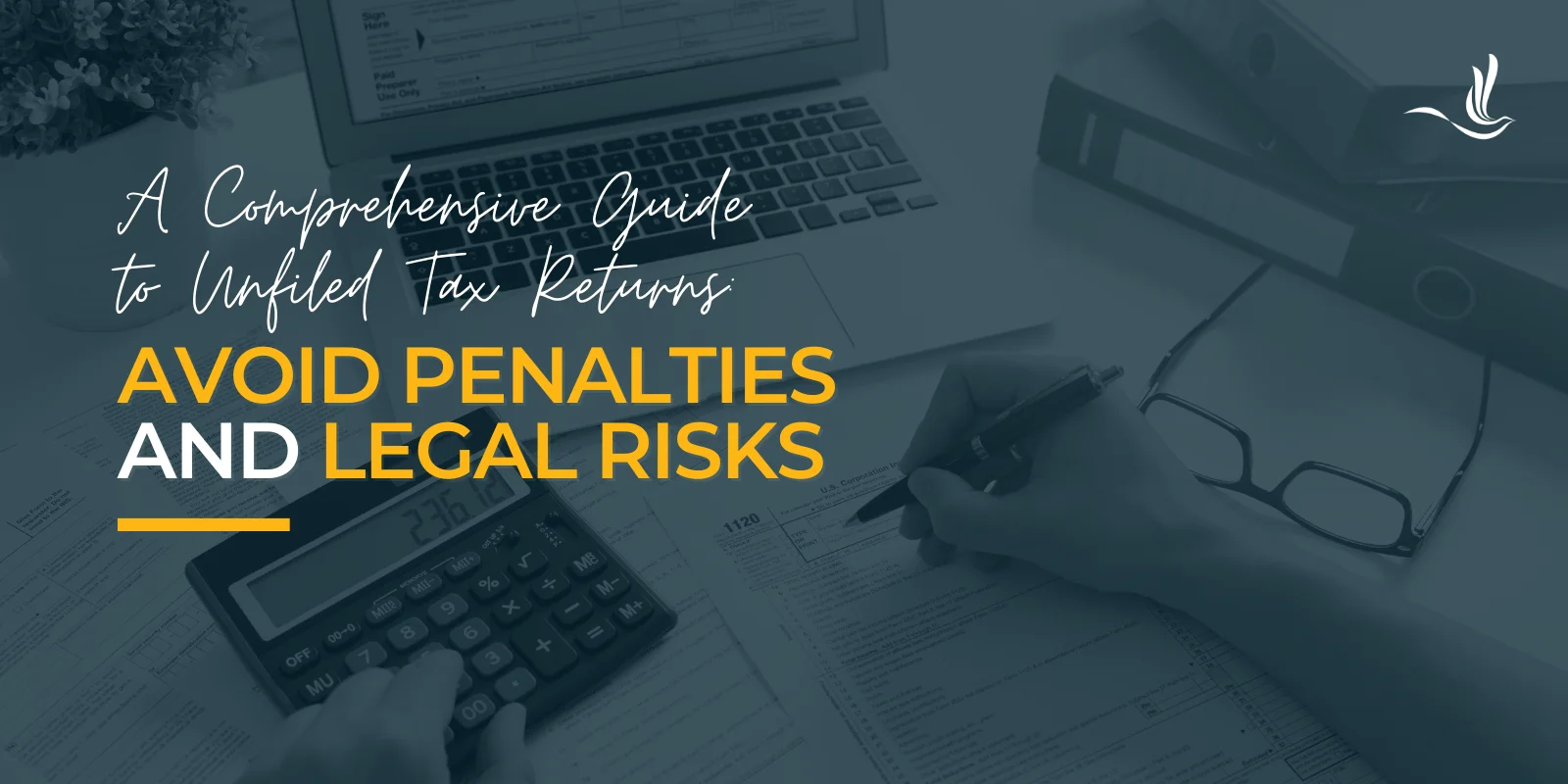
Unfiled Tax Returns: What You Need to Know
The IRS has robust mechanisms to address unfiled returns, and ignoring this obligation can lead to consequences. This article aims to provide a comprehensive guide to understanding, managing, and resolving unfiled tax returns.
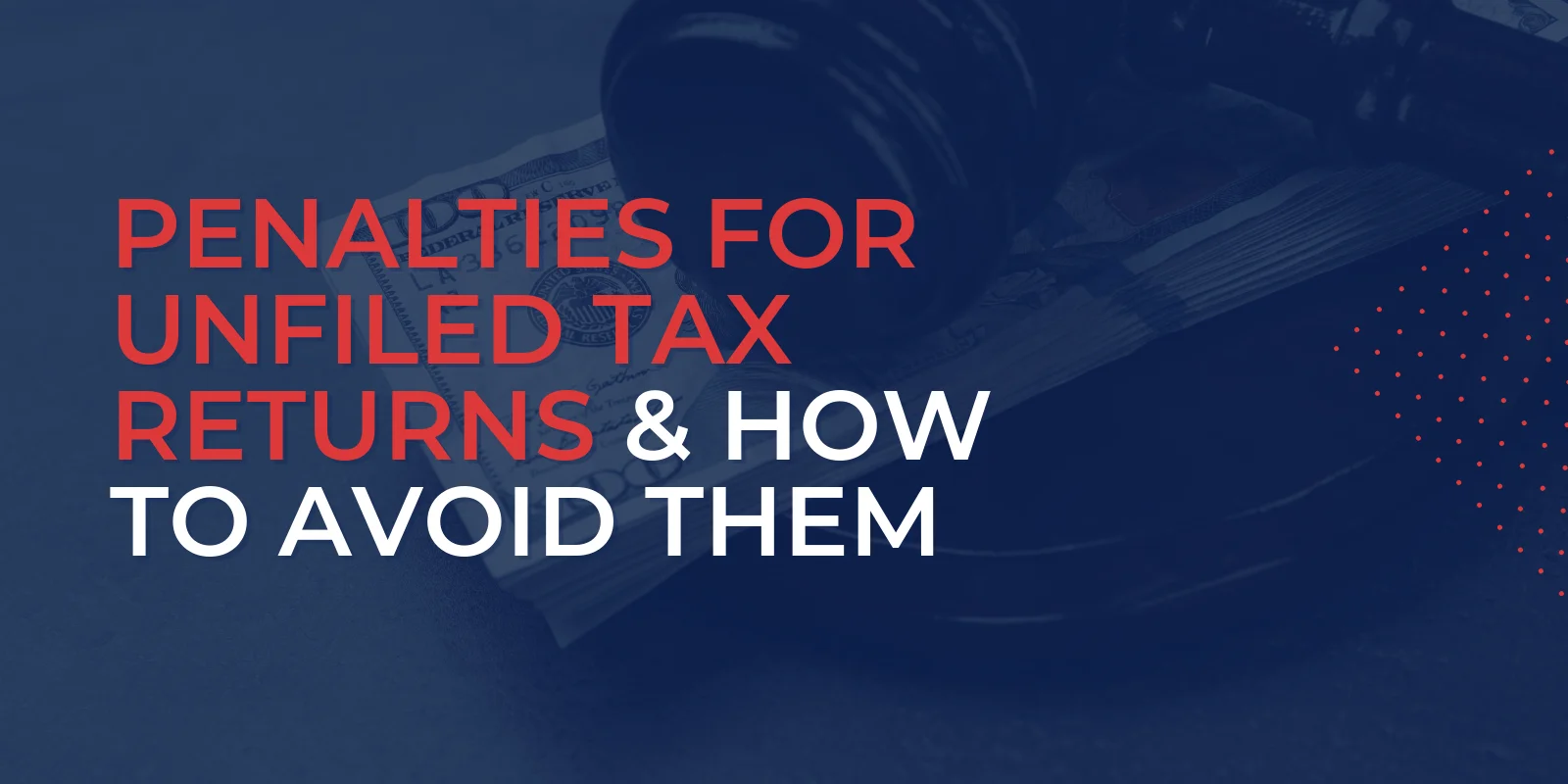
Penalties for Unfiled Tax Returns & How to Avoid Them
When you fail to file your tax returns or pay your taxes on time, you may face significant penalties from the IRS. Here’s how to mitigate or avoid IRS penalties for unfiled tax returns.
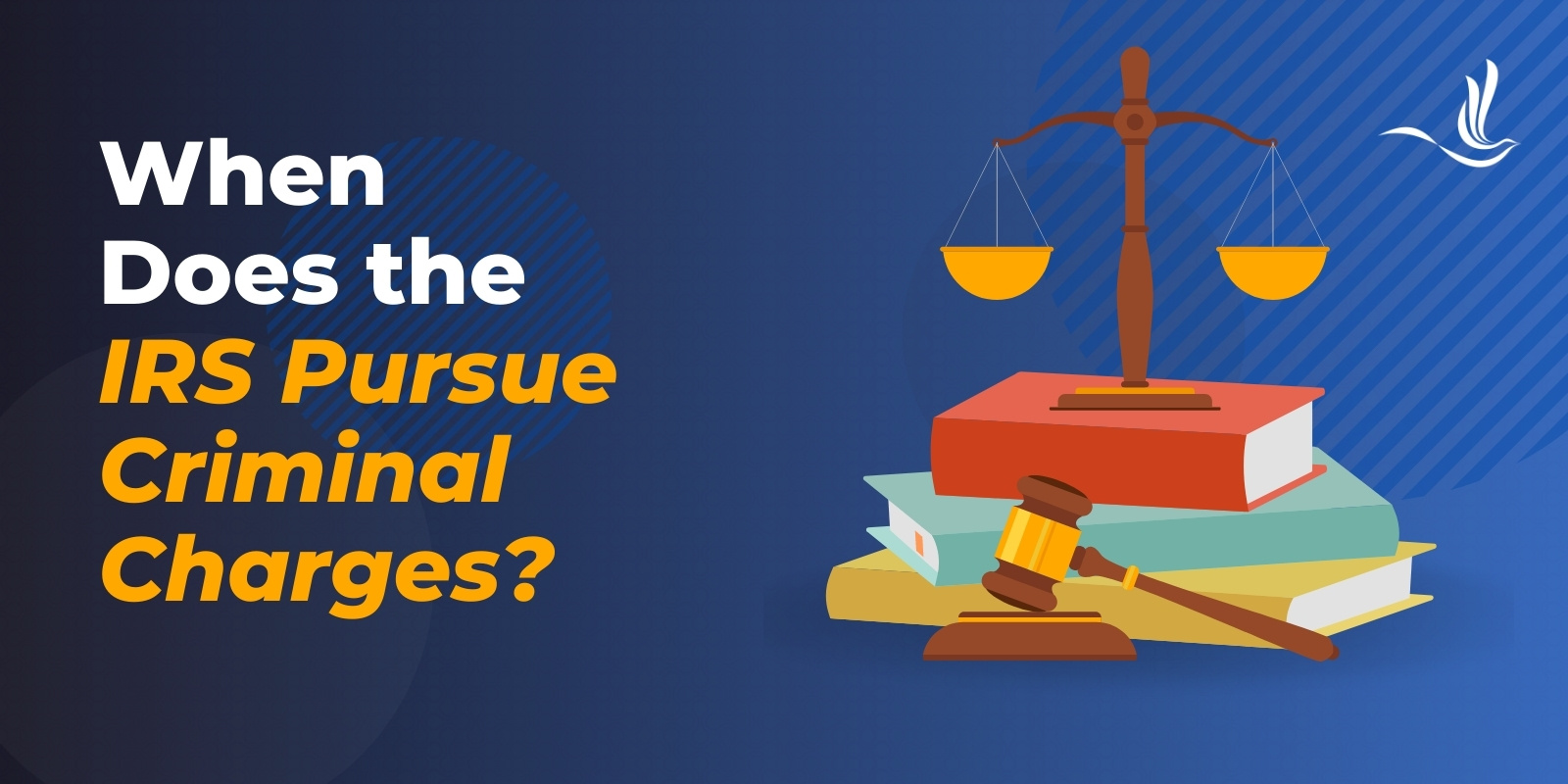
When Does the IRS Pursue Criminal Charges?
Tax evasion and tax fraud are federal crimes. But at what point does the IRS pursue criminal charges for these actions? Here’s what you need to know about how and when the IRS pursues criminal charges against a taxpayer.
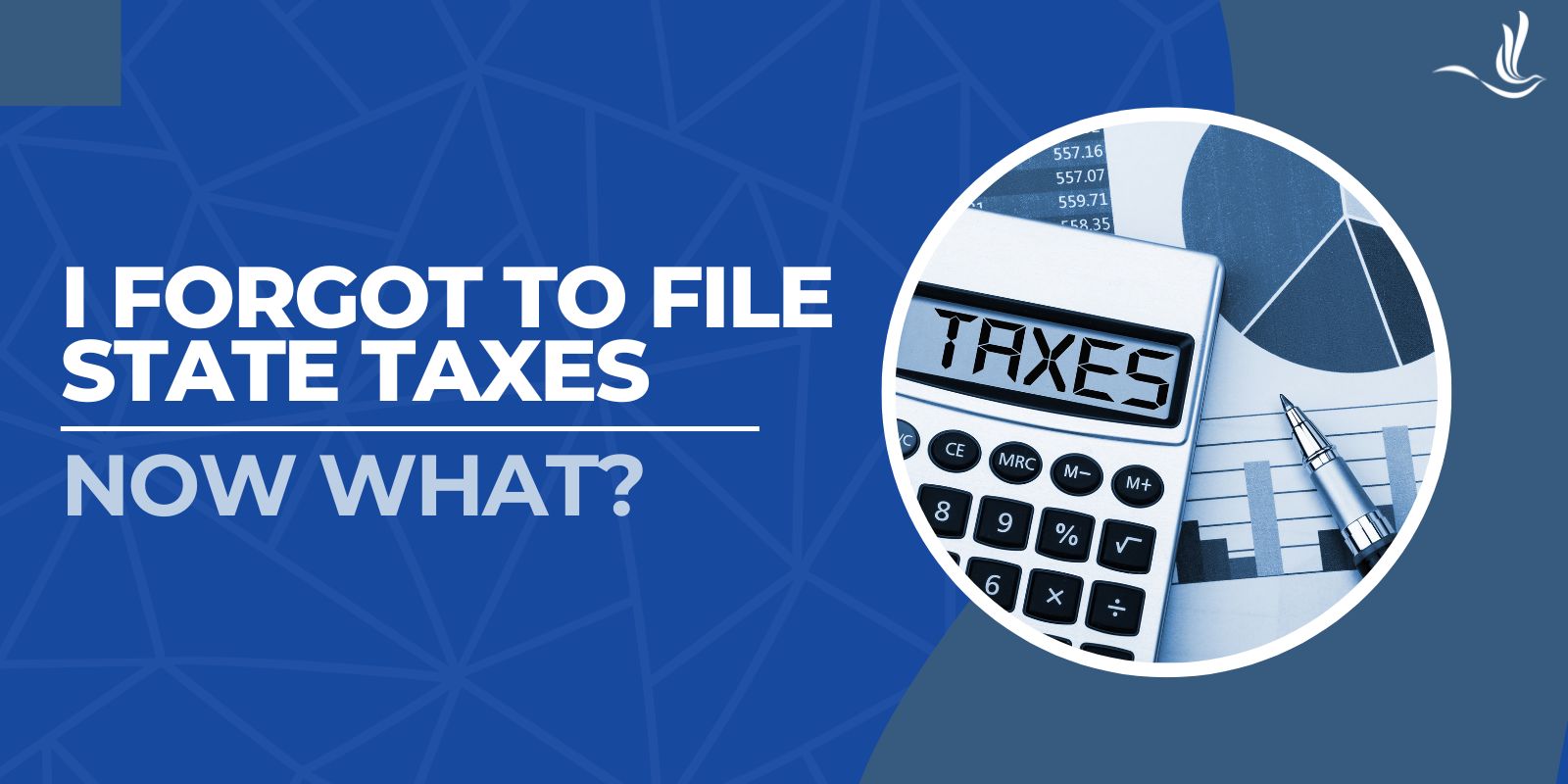
I Forgot to File State Taxes. Now What?
Forgetting to file state taxes is more common than you think. The good news is that there are steps you can take to fix the situation and minimize any financial impact. Here’s what you need to know and how to resolve the issue as efficiently as possible.
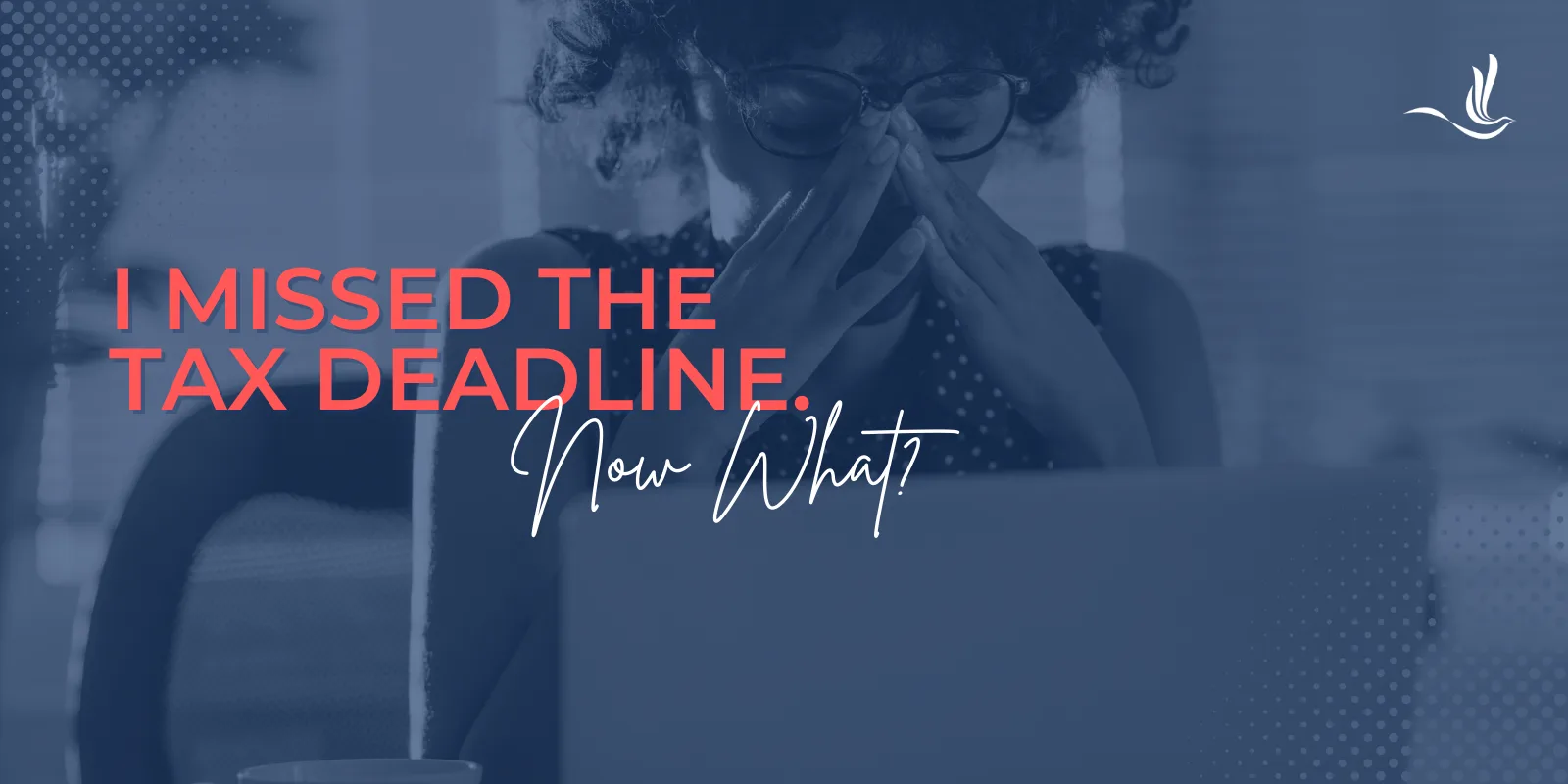
I Missed the Tax Deadline. Now What?
Missing the tax deadline can feel overwhelming, especially if you’re not sure what happens next. Whether you forgot, ran out of time, or just didn’t have the funds to pay what you owed, you’re not alone and you still have options.

Ask Phil: Failure to Pay and Failure to File. Which is Worse?
Optima Tax Relief’s Chief Tax Officer and Lead Tax Attorney, Phil, talks about the common IRS penalties: failure to pay and failure to file, including what each are, and which one is worse for taxpayers.
Let Optima Tax Relief Help
Call 1-800-536-0734 for a free consultation.
Let Optima Tax Relief Help
Call 1-800-536-0734 for a free consultation.